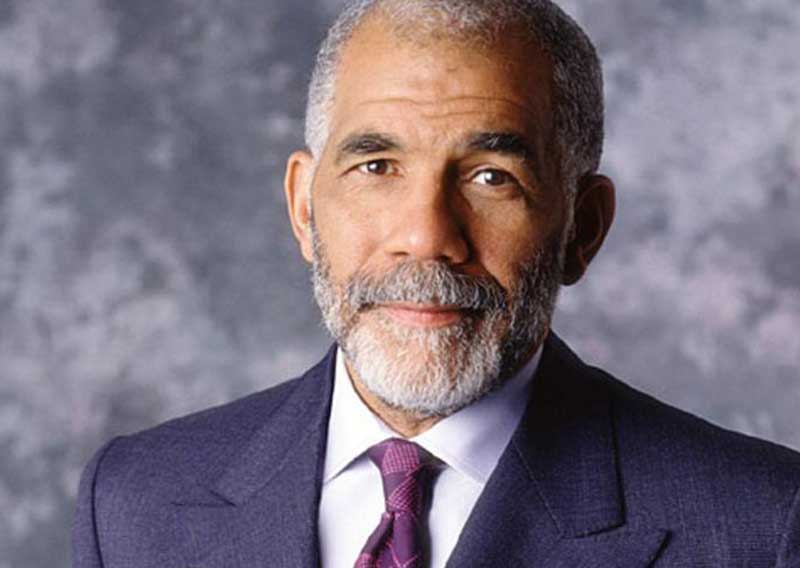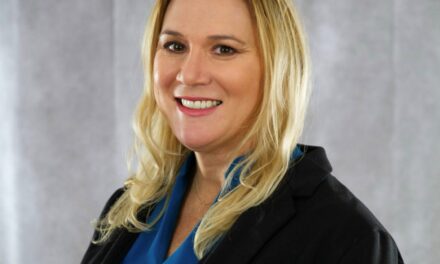Ed Bradley was known as Easy Ed at work
Veteran 60 Minutes correspondent Ed Bradley, who was born June 22, 1941, left a vast hole in the field of journalism when he died Nov. 9, 2006 at Mount Sinai Hospital in Manhattan of complications from chronic lymphocytic leukemia.
Bradley grew up in a tough section of Philadelphia, was wounded while covering the Vietnam War and later became the first black White House correspondent for CBS News.
He was a man who broke down racial barriers – and became a role model for young African Americans, 60 Minutes correspondent Lesley Stahl reports.
“The pressure is there,” Bradley said. “It’s been there every day of my life.”
In a special report, CBS Evening News anchor Katie Couric said Bradley was “considered intelligent, smooth, cool, a great reporter, beloved and respected by all his colleagues here at CBS News.”
He was a role model for both print and broadcast journalists.
At work his nickname was Easy Ed. He made it look effortless, as someone said: like he wasn’t really working, Stahl reports.
He was a legend.
According to his CBS News obituary, Bradley’s groundbreaking journalism included an interview with condemned Oklahoma City bomber Timothy McVeigh – the only television interview ever given by the man guilty of one of the worst terrorist acts on American soil. It also earned Bradley an Emmy. His reporting on the worst school shooting in American history, “Columbine,” revealed that authorities ignored telling evidence with which they might have prevented the massacre.
After graduating from Cheyney State College with a degree in education, he launched his career as a DJ and news reporter for a Philadelphia radio station in 1963, moving to New York’s WCBS radio four years later.
Bradley’s first job out of college was as a sixth-grade teacher.
He joined CBS News as a stringer in the Paris bureau in 1971, transferring a year later to the Saigon bureau during the Vietnam War. It was the story that put Ed Bradley on the map and almost killed him, Stahl reports.
As Bradley explained in one interview: “People were moved from Viet Cong areas into towns controlled by the government. And all of a sudden I heard this terrific noise … if I had not moved to sit on the side, I would have been dead.”
After reporting in Cambodia, Bradley moved to the Washington bureau in June 1974, 14 months after he was named a correspondent.
Other hour-long reports by Bradley prompted praise and action: “Death by Denial” won a Peabody Award for focusing on the plight of Africans dying of AIDS and helped convince drug companies to donate and discount AIDS drugs; “Unsafe Haven” spurred federal investigations into the nation’s largest chain of psychiatric hospitals; and “Town Under Siege,” about a small town battling toxic waste, was named one of the Ten Best Television Programs of 1997 by Time magazine. Bradley’s significant contribution to electronic journalism was also recognized by the Radio/Television News Directors Association when it named him its Paul White Award winner for 2000, joining distinguished journalists such as Edward R. Murrow, Walter Cronkite and Peter Jennings as a Paul White recipient.
Bradley’s work on 60 Minutes gained him much recognition, including a George Foster Peabody Award for “Big Man, Big Voice,” the uplifting story of a German singer who became successful despite birth defects.
Bradley joined CBS News as a stringer in its Paris bureau in September 1971. A year later, he was transferred to the Saigon bureau, where he remained until he was assigned to CBS News’ Washington bureau in June 1974. He was named a CBS News correspondent in April 1973 and, shortly thereafter, was wounded while on assignment in Cambodia. In March 1975, he volunteered to return to Indochina and covered the fall of Cambodia and Vietnam.
What was Bradley’s secret to getting such renowned stories? CBS News chief Washington correspondent Bob Schieffer said at the time of Bradley’s death that it was all in his style.
“Ed knew everyone from Jimmy Carter to Jimmy Buffett. He made people comfortable. He wasn’t the bulldog type reporter like Mike Wallace,” Schieffer said. “He set people at ease and got them to talk. Sometimes that was in their interest and sometimes it wasn’t. But he was like Columbo, who had that disarming style and the knack of getting that last answer out of someone.”
60 Minutes correspondent Steve Kroft said in Bradley’s obituary: “I think the thing that made him terrific was his presence. There was a dignity about him… a perfect mix of style and substance.”
Image Sources
- Ed Bradley: FindaGrave.com







